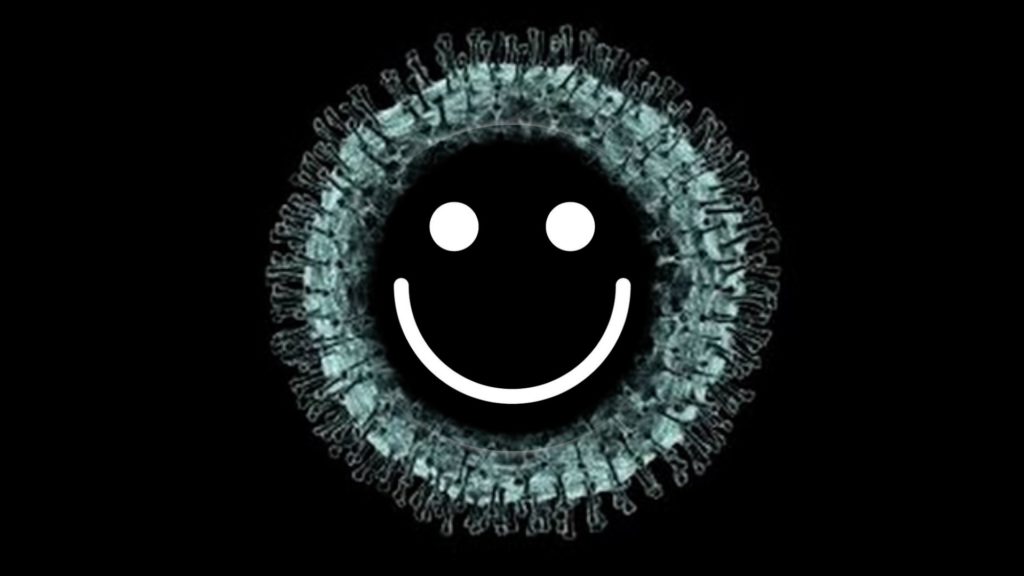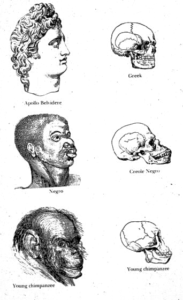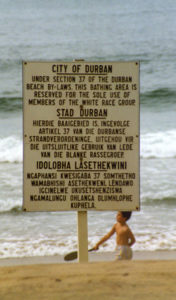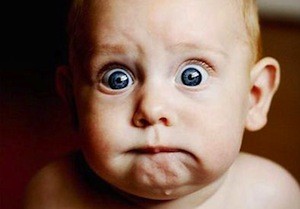David Fleminger – 27 March 2020

I’m glad I grew up in the 80s, when we still had a future. Now, any sense of certainty about what the next month, year, or decade may bring is truly gone. For the first time since 1945, the entire world is living under a wartime mentality. What was unthinkable just a week ago is now grim reality and we have no choice but to deal with it the best we can.
Make no mistake, it’s been a truly seismic shift. Something has snapped deep beneath the surface of humanity and the resulting shockwave will trigger both fast and slow-moving tsunamis, which are going to crash into the shores of society, commerce and politics for years to come. It’s going to be an extended period of terrible repercussions and unimaginable consequences, and we can only prepare for the worst.
Many articles have already been written about the immediate aftermath of the pandemic, and many more will come. The maelstrom of news, misinformation, anxiety, panic and lockdown swirls amid the inexorable rise in case numbers, with the dark shadow of death rates keeping pace.
Honestly, it’s making my head spin and I’ve had a tension headache for days now.
But, to avoid motion sickness, I often find that it’s helpful to look away from the frantic activity in front of you and focus instead on the middle or even far distance. Out there, beyond this ghost year of 2020, perhaps we can see the outline of a post-pandemic future?
As an amateur futurist (and aren’t we all these days?), my current thinking is that every crisis comes with an opportunity. After all, with total destruction comes the need to rebuild. And with the sudden shattering of the status quo, this could be an excellent time to make some fundamental changes to hopelessly broken systems.
The worst thing we can do after a flood is rebuild our houses on the same flood plain. That would be crazy (although not uncommon). And now, under the necessities of crisis management, perhaps we can finally shift priorities and perform a hard-reset on our society.
So, with little authority and much respect, here are some things that I believe we should be discussing, very seriously, as we begin to rebuild. Because one thing is crystal clear – this is going to happen again…
First, ban all wildlife markets globally and in perpetuity
Many of the planet’s most devastating plagues have been Zoonotic (transferred from animals to humans). Although researchers aren’t unanimous, AIDS is thought to have come from bush meat, MERS from camels, and SARS from civets; while Swine Flu, Bird Flu, the Spanish Flu and the new Coronavirus are all thought to have arisen through a recombination of flu strains from pigs, chickens, bats and/or pangolins that were crowded together in unhygienic wildlife markets.
The solution is simple: we must stop eating wildlife and close down all the markets where live and dead animals are crowded together alongside humans.
This needs to happen now, in every country on Earth, and in perpetuity. And the ban must be universally enforced by local and international teams, not subject to the whims of individual governments. This blanket ban should include forbidding international trade in anything other than domesticated animals, and all agricultural activities involving animals should be forced to operate according to strict standards of hygiene and the humane treatment of animals.
Not only is the wildlife trade inhumane and unhygienic, it simply isn’t necessary. If wildlife is an important source of food for the locals, government and NGOs need to step in and provide alternative sources of nutrition. It’s much cheaper than the costs of a global shutdown.
And if it’s ‘customary’ to eat bats, pangolins, rhino horn, monkeys or whatever, then that custom needs to be revised. Any traditional system that refuses to develop in face of crisis is dead and irrelevant. Time for us all to grow up and adapt to the times – we live in a connected world and it’s clear that we can no longer allow the reckless behaviour of one group to threaten the entire planet.
In fact, bearing in mind the bigger environmental picture, I have a sneaking suspicion that we should stop eating mammals altogether. But one step at a time.
And speaking of the climate…
The Climate Remains Priority Number One
The planet has been dealing with pandemics for millennia, and this too shall pass (either with the release of a vaccine or ‘herd immunity’ whereby more that 60% of the global population has been infected, thus depriving the virus of hosts). Hopefully, lessons will be learned and best-practices will be updated so that we can be better prepared for the next one.
But when it’s all over – no matter how awful the aftermath – we still have to deal with the fact that the Climate Crisis remains the biggest threat facing the long-term viability of humanity. There are already stories about how the pandemic has reduced industrial pollution, air quality has improved, wild birds have regained their colourful plumage in London, the (untrue) return of dolphins to the canals of Venice, etc.
We should therefore take a moment as individuals and (especially) corporations to consider how can use this down-time to re-fit and modify existing behaviours to better protect the environment when things start back up again in a month or two. If we just go back to business as usual (or worse, if the need to play catch-up results in the flaunting of existing environmental laws) there will be a very dire price to pay.
In essence, every action we take from now on must factor in the environmental cost. All product packaging needs to be reconfigured to be more easily recyclable and less wasteful. Consumer expectations in terms of choice and speed of delivery need to re-prioritised. Recycling should be formalised into paying work and trash needs to be monetised so that it is worth collecting (especially in Africa, where jobs are urgently needed).
Even the chemical composition of household products should be tweaked to remove anything that isn’t essential (for example, a foaming agent is added to shampoo, detergents and toothpaste for no reason other than the foam makes us think it’s working better).
Most importantly, financial models need to acknowledge that the environment cannot come behind the need for turning a profit. Because…
Profits are the Problem
In my (totally unqualified) opinion, the relentless quest for profit is killing the planet.
Don’t get me wrong, I am a believer in free markets and competition, etc. But not without limits. Consider this: Capitalism, by its definition, is designed to concentrate capital in the hands of those who already have it. Basically, under pure Capitalism, the rich get richer. That’s not a failing of the system, it’s how the system works.
By focussing only on their profit margin, which is necessary to keep the stock markets happy, companies are required to charge as much as they can while keeping costs as low as they can. The inevitable consequence of this model is that workers and suppliers are squeezed more and more every year. And this is clearly unsustainable.
Income inequality is already at an all-time high, even in developed countries, and it’s well established that such disparate distribution of wealth is linked to social instability, increased crime-rates, and political turmoil. Perhaps, then, it’s time for big business to worry less about ever-increasing profits and more about improving the lives of their workers. In other words…
Pay workers more – much more
With the exception of upper management, most staff should be paid more. Not for any philanthropic reasons, but so that they are able build comfortable lives, have homes, educate their children, and grow the wider economy. Everybody wins. But that means increasing the wages of workers substantially above the current rate of inflation. Otherwise, you get the phenomenon of ‘working poor’ that sees entire sections of the population trapped in a spiral of shrinking wages and increasing prices.
The good news is that, in light of the severe economic consequences that the pandemic is going to bring, governments and banks are rolling out bailouts to save the economy. The only problem is that, based on past experience, most of that money will go to the big corporates and financial services companies. Billionaires will bounce back as usual, the stock market will recover, and large companies will get the help they need. But the lowest-paid employees, freelancers, contractors, and gig-economy workers will likely be left carrying the can.
Post-pandemic, then, business leaders should look beyond their profit margins and commit to uplifting the working class through substantial pay raises. Especially those who do the grunt work: garbage collectors, teachers, factory workers, supermarket clerks, health-care workers, miners, etc. And if that means that upper management must take a pay cut, so be it.
This largesse may also extend to the concept of a universal basic income grant, which is being widely discussed as a potential safety net for vulnerable people in times of crisis.
However we do it, it’s imperative that we reduce income inequality – again, not for philanthropic reasons but because it’s the only way to enhance social and financial stability in the long run.
And if the corporates aren’t interested in redressing this ticking time bomb, then government should step in. Because…
It’s Time for the Government to do its job
The task of any government is to make life better for its citizens. But this is seldom the case. In South Africa, for example, there are huge issues around homelessness, hunger, access to quality health care, effective education, poor infrastructure in rural areas, living conditions in informal settlements, and so on.
This was certainly the case before the new democratic dispensation of 1994, but it’s now been 25 years since the ANC came to power and the daily struggles of millions of South Africans haven’t really changed.
Now, in the face of an unprecedented crisis, the government is rushing to setup additional homeless shelters, food kitchens, and sanitation facilities for those without running water. Empty buildings are getting repurposed as hospitals and hostels. Online and drive-through facilities are being made available for citizens to access services. The police are enforcing laws that were once only suggestions, and the security services are tackling intractable troublemakers who have been operating with impunity for years.
One wonders how the people will react when all these initiatives are taken away post-pandemic, and the government lets things slide back into the previous state of disrepair. Rather, let’s use this opportunity to entrench and formalise those positive contributions to our society so the forward momentum is maintained (with the proviso that autocrats and dictators don’t use the crisis as an excuse to seize more power and undermine democratic processes, as can happen).
Most importantly, governments need to start looking beyond themselves, put the people first, and consider their place in the wider world. And that means…
Moving Towards a Borderless Society
Clearly, the current pandemic is showing up both the best and the worst in our global systems.
On the plus side, there has been unprecedented cooperation between scientists and epidemiologists in terms of tracking the virus and developing a vaccine (which is still a year away). Health agencies are also sharing and re-distributing resources around the world, where possible, to help meet the shifting priorities of viral conflagration. Most gratifyingly, in South Africa at least, there’s the general cessation of partisan politics, which has been subsumed by a wave of solidarity and unity against a common, invisible enemy.
In line with this trend of increasing cooperation and compatibility (and despite populist and nationalistic tendencies that seek to split people apart), we urgently need to streamline systems to run across geopolitical boundaries. This will increase efficiency, stability and well-being across entire regions rather than just in individual territories.
In Africa, most notably, most of the national borders we live with today were drawn up by white men in Europe 150 years ago. And, back then, their only concern was snatching the most profitable bits of the continent away from their rivals. The result is a fragmented patchwork of semi-functional states that were further hobbled by centuries of Western exploitation and colonial bullshittery.
So, as controversial as it sounds, I would argue that it’s time to rethink the nature of these artificial geo-political borders. Red-tape, pointless paperwork, crooked officials, and long delays make every border a physical barrier to effective trade and exchange. Petty politics, conflicting legislation, and burdensome bureaucracy further restrict the growth of business and commerce. In America, a business franchise can open a branch in a new state relatively quickly. Not so in Africa.
This isn’t to say that we don’t need controls in place. Single-point border posts can still operate (and be closed when necessary) but the emphasis must be on continuity and speed. Isolationist thinking is going to be the death of us (and the US).
It would be a very complicated process indeed but I would suggest that a federal-style union of all countries in the Southern African Development Community, based on the South African constitution with a single economic authority, is a good start.
And if all that sounds impossibly idealistic, let’s not forget…
It’s the End of the World (as we know it)
In short, the coronavirus pandemic has changed everything – irrevocably – and we simply can’t go on as before. Because this is going to happen again and many systems and norms that we have had in place for decades are now proven to be ineffective or downright dangerous.
Despite the onslaught of dire outcomes that we’ll be facing in the next 12 months or more, we can and should seize this chance to re-invent fundamental processes and behaviours so that we’re able to handle the next crisis a bit better.
In the words attributed to Bishop Demond Tutu: “A time of crisis is not just a time of anxiety and worry. It gives a chance, an opportunity, to choose well or to choose badly.”

 I – Growing up Racist
I – Growing up Racist
 Yassis, I’m depressed about the state of our nation. And that worries me. I’ve always been the one who is upbeat about South Africa (you know the one). I love my country deeply. It is part of my identity, part of my self. I just can’t imagine living anywhere else. And yet…
Yassis, I’m depressed about the state of our nation. And that worries me. I’ve always been the one who is upbeat about South Africa (you know the one). I love my country deeply. It is part of my identity, part of my self. I just can’t imagine living anywhere else. And yet…